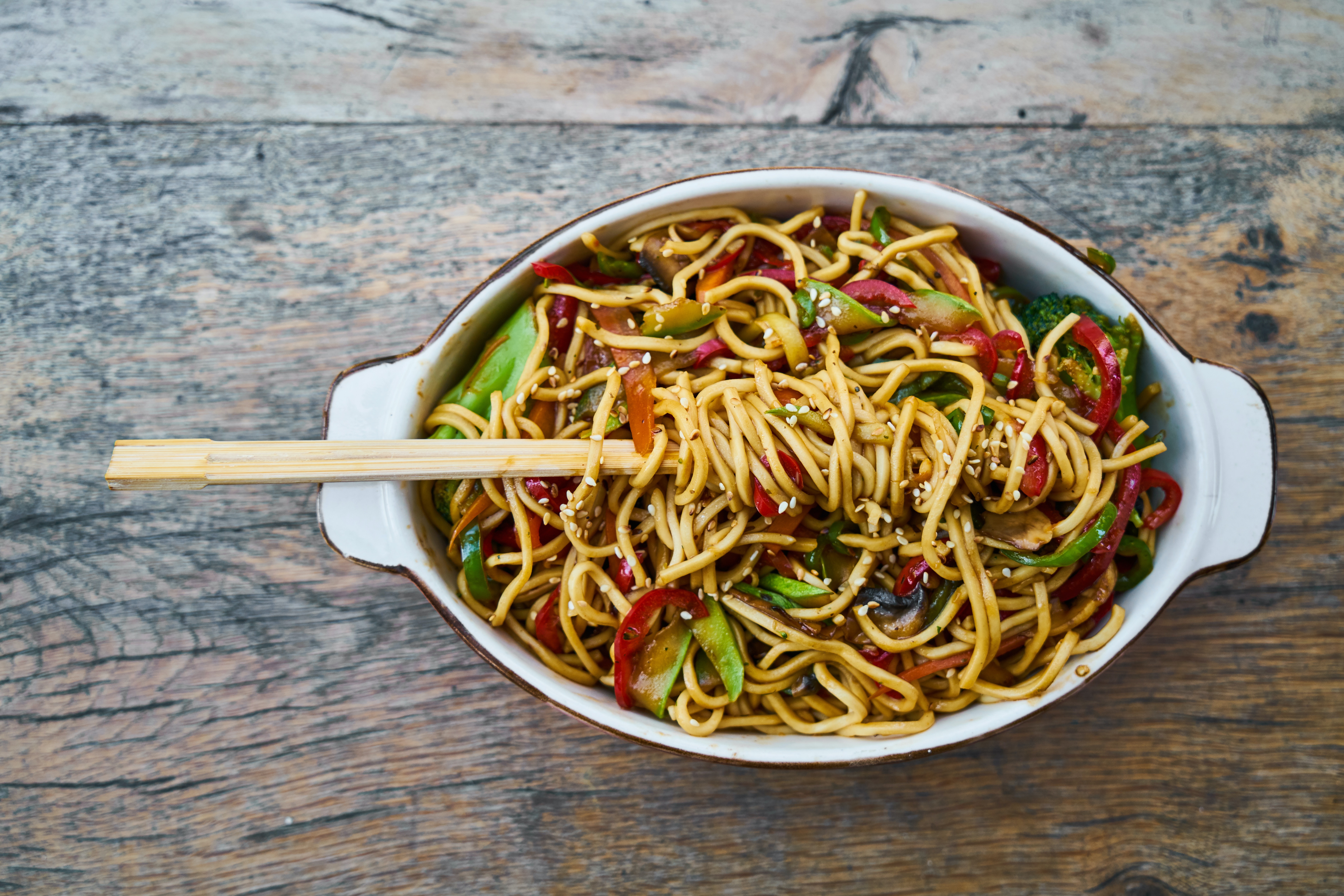Feeling Tired After Eating Healthy: Unraveling the Mystery Headline.
The Curious Case of Post-Nutritious Naps

We've all experienced it at some point - the baffling phenomenon of feeling tired after eating healthy. It's as if our bodies have a secret pact with the sandman, leaving us drowsy and longing for a cozy nap. But fear not! In this intriguing exploration, we will venture into the depths of this and uncover the hidden truths behind feeling tired after indulging in a healthy meal
Feeling Tired After Eating Healthy: A Paradoxical Twist?
How can something as virtuous as a nutritious meal leave us feeling drained and fatigued? It seems contradictory, doesn't it? Let's embark on a quest for answers and unravel the intertwined factors that contribute to this peculiar phenomenon.
The Sneaky Role of Macronutrients

Ah, the mischievous macronutrients - the carb crusaders, protein powerhouses, and fat-fueled rebels. Each holds a secret key that can unlock the mystery of post-nutritious napping.
1. Carbohydrates: Sweet Sustenance or Sugar Crash Culprit?
Carbohydrates, the energy elixirs of our culinary adventures, can sometimes play a sneaky game with our energy levels. Refined carbs, found in processed foods, can swiftly elevate our blood sugar levels, sending us on a thrilling rollercoaster ride of energy spikes and crashes. However, their wily counterpart, complex carbohydrates from whole grains and veggies, ensure a gradual release of energy, preventing those sudden slumps.
2. Proteins: Muscle Menders or Digestion Dilemmas?
Proteins, the noble knights of muscle repair and hormone production, seem innocent enough. But consuming a protein-packed feast can activate the body's digestion defenders, diverting precious energy to the intricate process of breaking down these building blocks. So, while proteins are essential, they can also prompt a temporary energy dip as our bodies focus on digesting these marvelous molecules.
3. Fats: The Flavorful Fugitives
Oh, the seductive allure of healthy fats! These stealthy culprits, present in avocados, nuts, and oily fish, can bring pleasure to our palates. Yet, indulging in an abundance of these delectable delights can lead to a diversion of energy towards digestion, leaving us feeling momentarily sluggish. A tantalizing trade-off, indeed!
The Dance of Blood Flow Redistribution
Ah, the intricate choreography of blood flow! After a meal, our bodies become masterful conductors, orchestrating a symphony of circulation. The baton of blood is directed towards the digestive system, where it dances with the nutrients, nourishing our bodies from within. But alas, this grand performance may steal away vital resources from other parts of our body, leaving our brains and muscles yearning for their share. And thus, fatigue sets in.
Size Matters: Portions and Energy Plummets
In this tale of culinary fatigue, the size of the feast can be a crucial character. Behold, the mighty portion sizes! Indulging in a colossal meal, no matter how virtuous its contents, can trigger what some call a "food coma." The body diligently expends energy on the demanding task of digestion, leaving us in a state of temporary weariness. It's a cautionary reminder that moderation is the sage guide to energy preservation.
The Dance of Revitalization: Strategies to Reclaim Energy
Now that we've uncovered the secrets behind feeling tired after eating healthy, let us journey toward the land of revitalization. Here, we present a plethora of strategies to combat post-nutritious fatigue and restore your energy reserves.
1. Balanced Macronutrient Mastery
Harness the power of balance by crafting meals that boast a harmonious blend of macronutrients. Embrace the fusion of complex carbohydrates, lean proteins, and healthy fats. This triumphant trio will provide a steady stream of sustained energy, helping you to say good bye to those energy rollercoasters.
2. Portion Wizardry and Mindful Munching
Become a portion inspector and master the art of mindful munching. Listen to your body's cues of hunger and satiety, indulging in moderate portion sizes. By savoring each bite and allowing yourself time to appreciate the flavors, you can avoid overwhelming your digestive system and sidestep the clutches of post-meal fatigue.
3. The Chronological Conundrum: Meal Timing Magic

Timing is everything! Delve into the realm of timely eating by strategically planning your culinary adventures. Reserve your largest meals for times when you need a burst of energy, such as breakfast or lunch. As the day wanes, opt for lighter, nutrient-rich meals that won't burden your body's energy resources.
4. The Hydration Hero's Quest
Quench your thirst and conquer fatigue with the power of hydration! Embrace the hydration hero within and ensure you're drinking ample water throughout the day. Hydration supports optimal bodily functions and helps keep those energy-draining woes at bay. Aim for at least 8 glasses of water daily, and let your body revel in its refreshed state.
5. The Art of Food Symphony: Pairing Palates
Unleash your inner culinary composer and experiment with the symphony of food pairings. Discover the combinations that keep your energy levels soaring. Some find that pairing proteins with nutrient-dense vegetables and healthy fats prevents the dreaded energy crashes. Explore the palate-pleasing possibilities and let your taste buds guide you to newfound vigor.
6. The Dance of Movement: Exercise Euphoria
Lace up those sneakers and engage in the dance of movement! Regular physical activity serves as a powerful antidote to post-meal fatigue. Exercise enhances blood flow, boosts digestion, and unleashes a cascade of endorphins, those marvelous mood-boosting chemicals. Dedicate at least 30 minutes to moderate-intensity exercise most days of the week, and revel in the energizing effects.
FAQs: Demystifying the Enigma
Q: Could feeling tired after eating healthy be a sign of an underlying health condition?
A: While it's generally normal to experience some post-meal fatigue, persistent or extreme fatigue may warrant further investigation by a healthcare professional to rule out any underlying health conditions.
Q: Can nutrient deficiencies contribute to post-meal fatigue?
A: Yes, certain nutrient deficiencies, such as iron or vitamin B12 deficiencies, can lead to fatigue. If you suspect a deficiency, consult a healthcare professional for appropriate testing and guidance on dietary adjustments or supplementation.
Q: Can stress play a role in feeling tired after eating healthy?
A: Absolutely! Stress can impact digestion and energy levels. When stress takes the stage, our body's resources shift focus, potentially affecting the digestive process. Incorporating stress-management techniques like meditation or exercise can help alleviate post-meal fatigue.
Q: Are there specific foods that can help prevent post-meal fatigue?
A: While no single food can work miracles, consuming a balanced diet rich in whole grains, lean proteins, fruits, vegetables, and healthy fats can promote sustained energy levels. Additionally, natural sources of caffeine, like green tea or dark chocolate, may offer a gentle energy boost.
Q: Can meal timing influence post-meal fatigue?
A: Absolutely! Meal timing plays a role in energy levels. Consuming large meals close to bedtime can disrupt sleep and leave you feeling tired the next day. Aim to have your largest meal earlier in the day and opt for lighter, well-balanced meals in the evening to promote better energy management.
Q: If lifestyle changes don't alleviate post-meal fatigue, should I seek medical advice?
A: If you've made lifestyle adjustments and continue to experience persistent post-meal fatigue or if it significantly impacts your daily life, it's advisable to consult a healthcare professional. They can evaluate your symptoms, conduct any necessary tests, and provide personalized recommendations tailored to your unique situation.
In Conclusion: Unraveling the Mystery of Post-Meal Fatigue
Feeling tired after eating healthy may seem like a problem, but armed with the knowledge of macronutrients, blood flow redistribution, portion control, and mindful habits, you can navigate the maze and regain your energy. Embrace the art of balanced nutrition, hydrate like a champion, savor the symphony of food combinations, and keep your body in motion through regular exercise. Remember, each body is unique, so listen closely to its signals and adapt your lifestyle to suit your needs.
So, the next time you find yourself succumbing to post-nutritious slumber, fear not! Implement these strategies, seize control of your energy levels, and unlock a world of vitality. Embrace the journey of feeling nourished and energized after each meal, bidding farewell to the tiredness that once haunted your post-nutrition moments.
New! Comments
Have your say about what you just read! Leave me a comment in the box below.